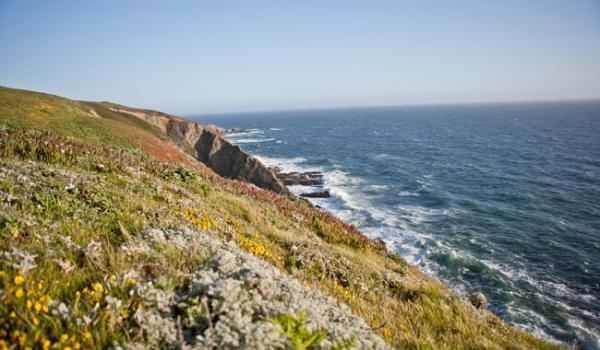IUCN CEM Mediterranean Type Ecosystems Specialist Group

Overview and description
- Description:
-
The objective of the Mediterranean Ecosystem Specialist Group is to tap into its members’ collective experience in managing field station reserves and protected areas in Mediterranean-climate regions ...
Group leadership
Mr Fco. Javier MAESTRE GASTEAZI
Mediterranean-type ecosystems (MTEs), with their characteristic and unique climatic regimes of mild wet winters and warm and dry summers, occur in just five regions of the world: California; Central Chile; the Mediterranean Basin; the Cape Region of South Africa; and Southwestern and South Australia.
The world’s five Mediterranean-climate regions are home to remarkable and globally significant levels of plant diversity and endemism that has led all five regions to be designated as “biodiversity hotspots.” Although these regions cover only slightly more than 2% of the world’s land areas, the combined vascular plant flora of the five regions comprises approximately 20% of all of the plant species in the world. Moreover, these Mediterranean-climate regions also are recognized internationally as some of the most imperiled ecosystems in the world. The five Mediterranean regions are estimated to experience very great proportional change in biodiversity by 2100 owing to their sensitivity to changes in land use and climate.
Role of Biological Field Stations
Biological field stations throughout the world have significant potential for addressing the most pressing environmental challenges facing science and society today by actively engaging in research collaborations and the development of environmental observatory networks and such field stations have particular relevance for Mediterranean-climate regions. University-operated field stations can play a significant role in providing core scientific knowledge to inform effective resource management and preservation of biodiversity.
The University of California Natural Reserve System provides ecological expertise in areas not otherwise served in the resource management community. It develops and maintains long-term research on ecosystem structure and function and the population dynamics of key species. While these university-operated field stations already provide conservation-oriented courses to students and the general public, we see great added value in their role by establishing a formal process to encourage interactions and collaborations among field station managers dealing with threats and concerns on issues that transcend a single reserve or protected area.
Goals and Objectives
The objective of the Mediterranean-Type Ecosystem Specialist Group (MTEG) is to tap into our members’ collective experience in managing field station reserves and protected areas in Mediterranean-climate regions. We aim to accomplish three major goals:
- Promote cross‐disciplinary scientific research, best practices, and information-sharing, that informs and supports environmental management to protect the exceptional biodiversity and unique ecosystems of MTEs;
- Enhance educational opportunities and training for future conservation professionals; and
- Provide environmental public outreach programs relevant to Mediterranean-climate regions.
The products of MTEG’s efforts will be significant to a wide spectrum of interests—from researchers to policymakers, land managers to local residents—throughout the world’s Mediterranean-climate regions. MTEG will highlight and focus on the complexity of ecological and global change and social science research related to conservation science, expand the clientele for these disciplines, and motivate others to understand their linkages. These are all critical issues for making the best use of conservation science to inform resource management of natural areas.
1. Scientific Research, Best Practices, Information Sharing
Mediterranean-climate regions provide many opportunities for comparative studies of the controlling factors in the evolution of biodiversity. These five regions share common characteristics of a specific climatic regime and an independent evolution of plant and animal species adapted to these conditions within each region. Thus, they provide a natural ecosystem experiment with five independent replications. The value of comparative studies between these regions lies not only with their similarities, but with subtle differences in climatic conditions, topographic diversity, evolutionary history, and human impacts that have led to the patterns of diversity that we see today. The remarkable biodiversity of MTEs together with the large numbers of rare and endangered species in these regions bestows a special significance to expanding studies of these regions to better understand the evolution of diversity, particularly by vascular plants. Serious and increasing threats of habitat transformation and degradation today make it critical that there be a better understanding of the conservation science and sustainable resource management in all five MTEs.
Mediterranean-climate regions globally face critical threats due to increasing urbanization, invasive species and the homogenization of flora and fauna, global change, and pressures of conservation at the urban-wildland interface. It is with these management issues in mind that we propose to combine our scientific resources and intellectual capital to define, develop, and disseminate a cooperative program dealing with informed resource management of natural reserves in the Mediterranean-climate regions.
2. Education and Training
MTEG will work to develop funding resources to support hands-on training for reserve managers in California and the four other Mediterranean regions to use the best available science to inform how they preserve and protect the ecosystems for which they are responsible, and develop proactive management plans to anticipate potential threats such as invasive species, non-native pathogens, climate change, human population pressures on protected areas (e.g., illegal collections, poaching, vandalism, etc.), and other disturbances events.
3. Public Outreach
The protection of MTE biodiversity requires the broad dissemination of scientific and technological knowledge, to foster a greater global understanding of these unique, critical ecosystems. MTEG members will commit to disseminating best practices and share information on successful methods for addressing ecosystem management challenges through publications, lectures, and international workshops, including the International MEDECOS Conferences and Isomed/Society for Conservation Biology Mediterranean Initiative.

